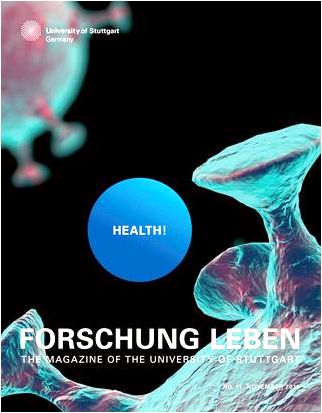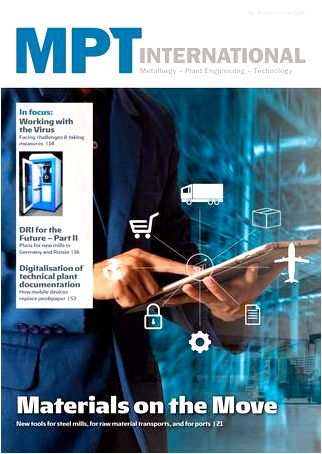It had been her childhood peanut allergy that first sparked senior Ayesha Ng’s passion for the body. “;To check this out severe reaction occur to my body system and never understand what was happening — that helped me much more interested in biology and living systems,” Ng states.
She didn’t exactly plan it by doing this. However in her 3 . 5 years at Durch, Ng, a biology and cognitive and brain sciences double major from the la, California area, has conducted research and brought classes analyzing pretty much every degree of human health — from cellular to societal.
Most lately, her desire for medicine and health equity brought her towards the National Reason for Cdc and Prevention (CDC), where, this summer time, she labored to build up guidelines for addressing health disparities on condition and native health jurisdictions’ Covid-19 data dashboards. Now, being an ambitious physician amongst the school of medicine application, Ng has a feeling of how microbiological, physiological, and social systems interact to affect an individual’s health.
Beginning small
Throughout her entire newbie at Durch, Ng studied the biology of health in a cellular level. Particularly, she researched the results of fasting and aging on regeneration of intestinal stem cells, which come in a persons intestinal crypts and continuously self-divide and reproduce. Understanding these metabolic mechanisms is vital, his or her deregulation can result in age-connected illnesses for example cancer.
“;That experience permitted me to broaden my technical skills, just becoming accustomed to so various sorts of molecular biological techniques immediately, that we really appreciated,” Ng states of her time in the Whitehead Institute for Biomedical Research in Professor David Sabatini’s lab.
“;After a while, I recognized which i also wanted tostudy sciences in a broader, more macro level, rather of just the microbiology and molecular biology that people were studying in Course 7,” Ng states of her biology major.
Additionally to staring at the biology of cancer, Ng acquired a fascination with a persons brain and just how it truely does work. “;I really was thinking about that, because my grand daddy has dementia,” Ng states.
Seeing her grandfather’s cognitive decline, she was motivated to get involved in Durch BrainTrust, students organization that provides a support network for people from round the Boston, Massachusetts area who’ve brain injuries. “;We have these conferences, by which I serve among just one or two students there to facilitate a secure space where we are able to have these people with brain injuries gather,” Ng states from the peer-support part of the program. “;They can definitely share their mutual challenges and encounters.”
Investigating the mind
To pursue her curiosity about brain research and also the societal impact of brain injuries, Ng traveled towards the College of Hong Kong the summer time after her newbie being an Durch Worldwide Science Initiatives (MISTI) China Fung Scholar. Dealing with Professor Raymond Chang, she started to look at neurodegenerative disease and used tissue-clearing strategies to visualize 3D mouse brain structures at cellular resolution. “;That was personally significant for me personally, to analyze about this and find out more about dementia,” Ng states.
Coming back to Durch her sophomore year, Ng was sure that she desired to continue staring at the brain. She started focusing on Alzheimer’s research in the Durch Picower Institute for Learning and Memory within the lab of Professor Li-Huei Tsai, the Picower Professor of Neuroscience at Durch. Much existing research into Alzheimer’s continues to be in the bulk-tissue level, concentrating on the neurons’ role in neurodegeneration connected with aging.
Ng’s use Tsai views the complexness of alterations across genes and fewer-abundant cell types, for example microglia, astrocytes, along with other supporting glial cells that become dysregulated within the brains of patients with Alzheimer’s. Thinking about the interplay between and within cell types during neurodegeneration is most intriguing to her. Although some molecular processes are protective, other damaging ones concurrently occur and may exist even inside the same cell type. This intricacy makes the mechanistic basis behind Alzheimer’s progression elusive and also the research that rather more crucial.
“;It’s interesting to determine how heterogeneous and sophisticated the responses have been in Alzheimer’s brains,” Ng states from the research program with Tsai, a founding director of MIT’s Aging Brain Initiative. “;I really consider these potential new drug targets to enhance strategy to Alzheimer’s later on because I’ve come across, with my grand daddy especially, how treatment methods are really missing within the neurodegeneration field. There isn’t any treatment that’s had the ability to stop or perhaps slow the advancement of Alzheimer’s.”
Her research study within the Tsai Lab uses technology known as single-nucleus RNA sequencing (snRNA-seq), which extracts the genomic information found in individual cells. This really is adopted by computational dimension reduction and clustering algorithms to look at how Alzheimer’s differentially affects genes and particular cell types.
“;With that project, we have had the ability to use single-nucleus RNA sequencing to actually consider the brains of human Alzheimer’s patients,” Ng states. “;And using the single-cell technology, we are able to check out brain tissue in a much greater resolution, allowing us to determine that there’s a lot heterogeneity inside the brain.”
After performing at least a year of Alzheimer’s research after which going for a human physiology class in her own third year, Ng made the decision to include another major in brain and cognitive sciences to achieve much deeper insight particularly into the way the central nervous system in the human body functions.
“;That class really permitted me to understand which i love organ systems and desired to study by searching at more physiological mechanisms,” Ng states. “;It continues to be excellent to, in the finish of my college career, really delve more right into a very specific system.”
Medicine and society
Getting acquired perspective on cellular and microbiology, and human organ systems, Ng made the decision to zoom out further, interning earlier this summer time in the National Reason for CDC. She found the chance through MIT’s PKG Center, applied among 60 candidates, and it was selected for any group of four. There, as part of the CDC Foundation’s Health Equity Strike Team, she examined how you can increase transparency of openly available Covid-19 data on health disparities and just how the narrative associated with health equity could be modified in public places health messages. This involved harnessing data concerning the census of individuals most affected during Covid-19 — including how infection and mortality rates differ starkly according to social factors including housing conditions, socioeconomic status, race, and ethnicity.
“;Thinking about each one of these factors, we compiled some guidelines for the way to provide data about Covid-19, what data ought to be collected, and attempted to push individuals to help jurisdictions as well as-practice recommendations,” Ng states. “;That did really increase my curiosity about health equity making me realize how important public health is really as well.”
Amongst the Covid-19 pandemic, Ng is spending the very first semester of her senior year aware of her family in the la area. “;I miss the folks and the inability to communicate with not just other students and peers, but additionally faculty too,” she states. “;I wanted to savor time with buddies, and merely explore much more of Durch, too, that we did not always can do in the last couple of years.”
Still, she is constantly on the take part in both BrainTrust and MIT’s Asian Dance team, remotely, through weekly practices on Zoom.
“;I think dance is among the greatest de-stressors for me personally I’d never done dance before you go to college. Dealing with meet this team and join this community permitted me not just to connect with my Asian cultural roots, but additionally just expose myself for this new talent where I possibly could really learn to express myself on stage,” Ng states. “;And that actually continues to be the origin of relief that i can just liberate any worries which i have, and it has elevated my feeling of self-awareness and self-confidence.”
Equipped with the numerous encounters she’s enjoyed at Durch, both interior and exterior the classroom, Ng intends to continue studying both medicine and public health. She’s excited to understand more about different potential specialties and it is presently most intrigued by surgery. Whichever niche she may choose, she’s going to include health equity and cultural sensitivity in her own practice.
“;Seeing surgeons, Personally, i believe that having the ability to physically heal someone with my very own hands, that might be probably the most rewarding feeling,” Ng states.

Resourse:https://news.durch.edu/2020/ayesha-ng-many-levels-human-health-1109
